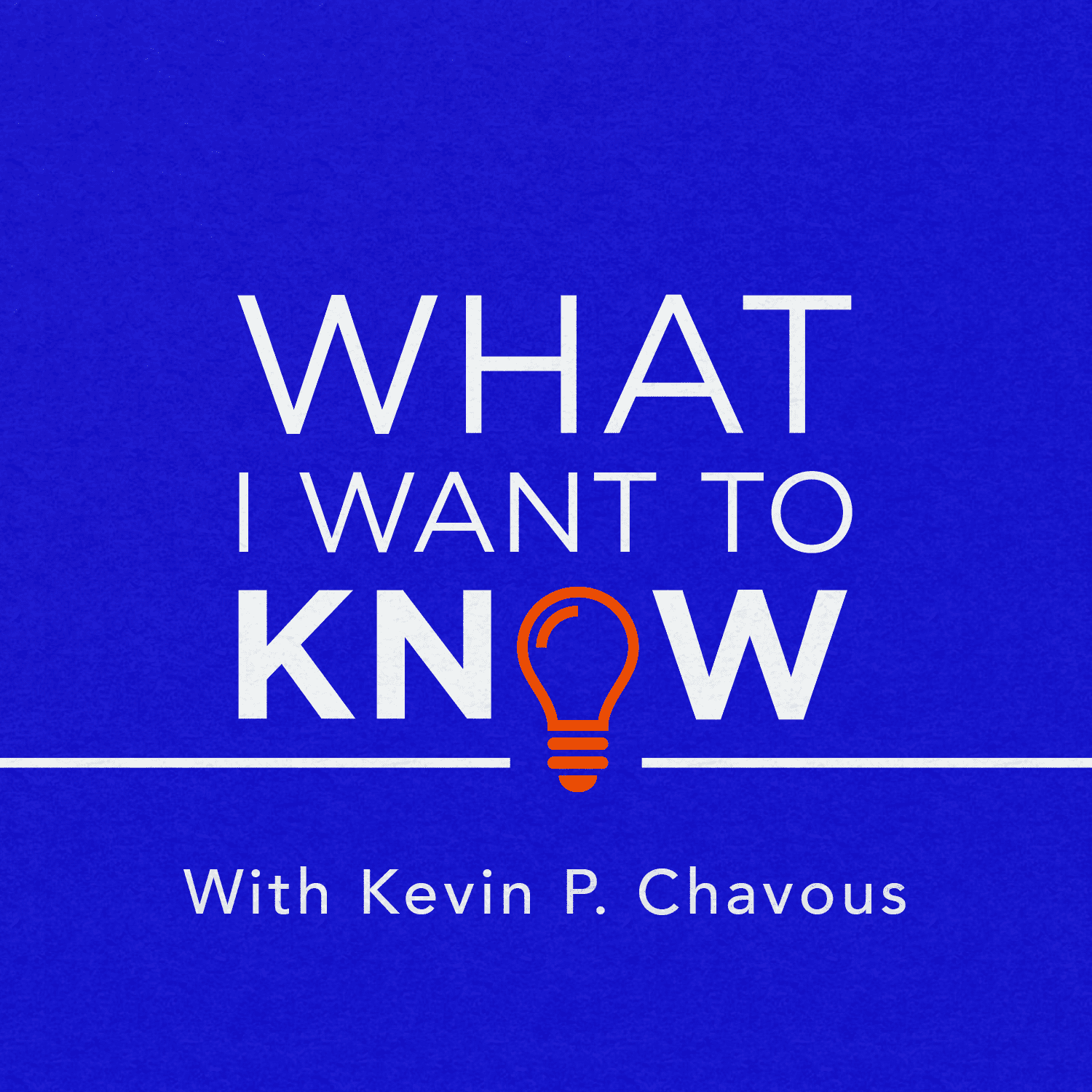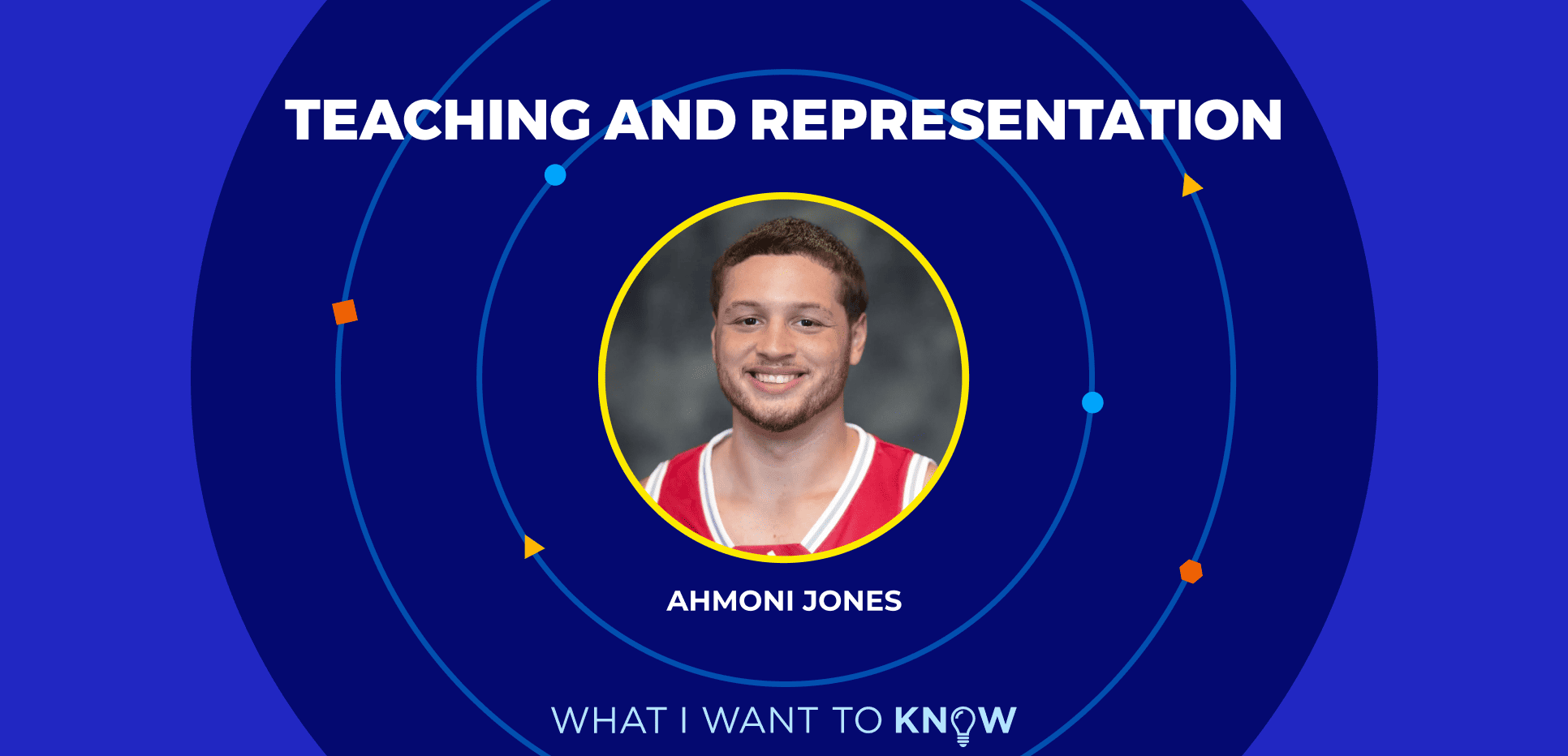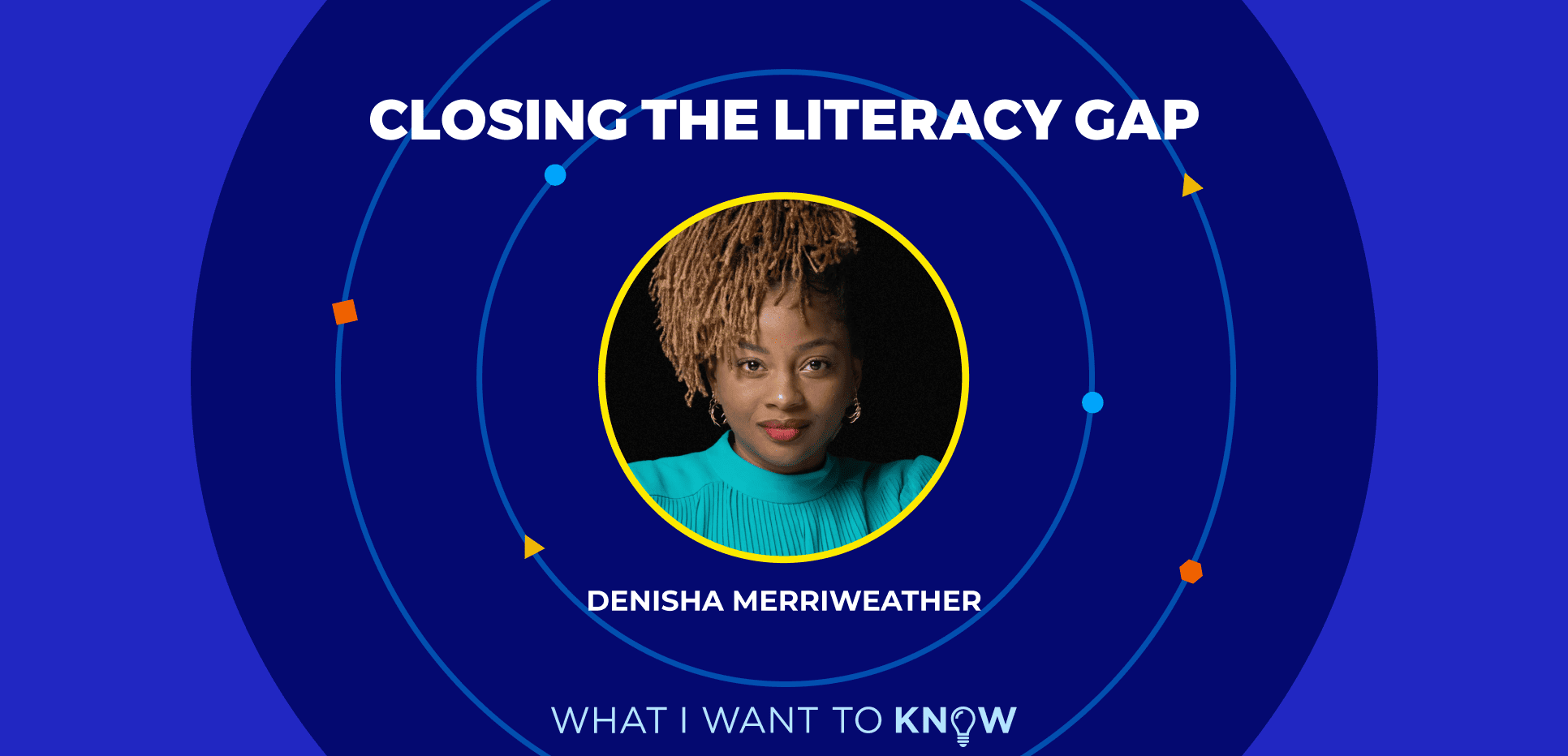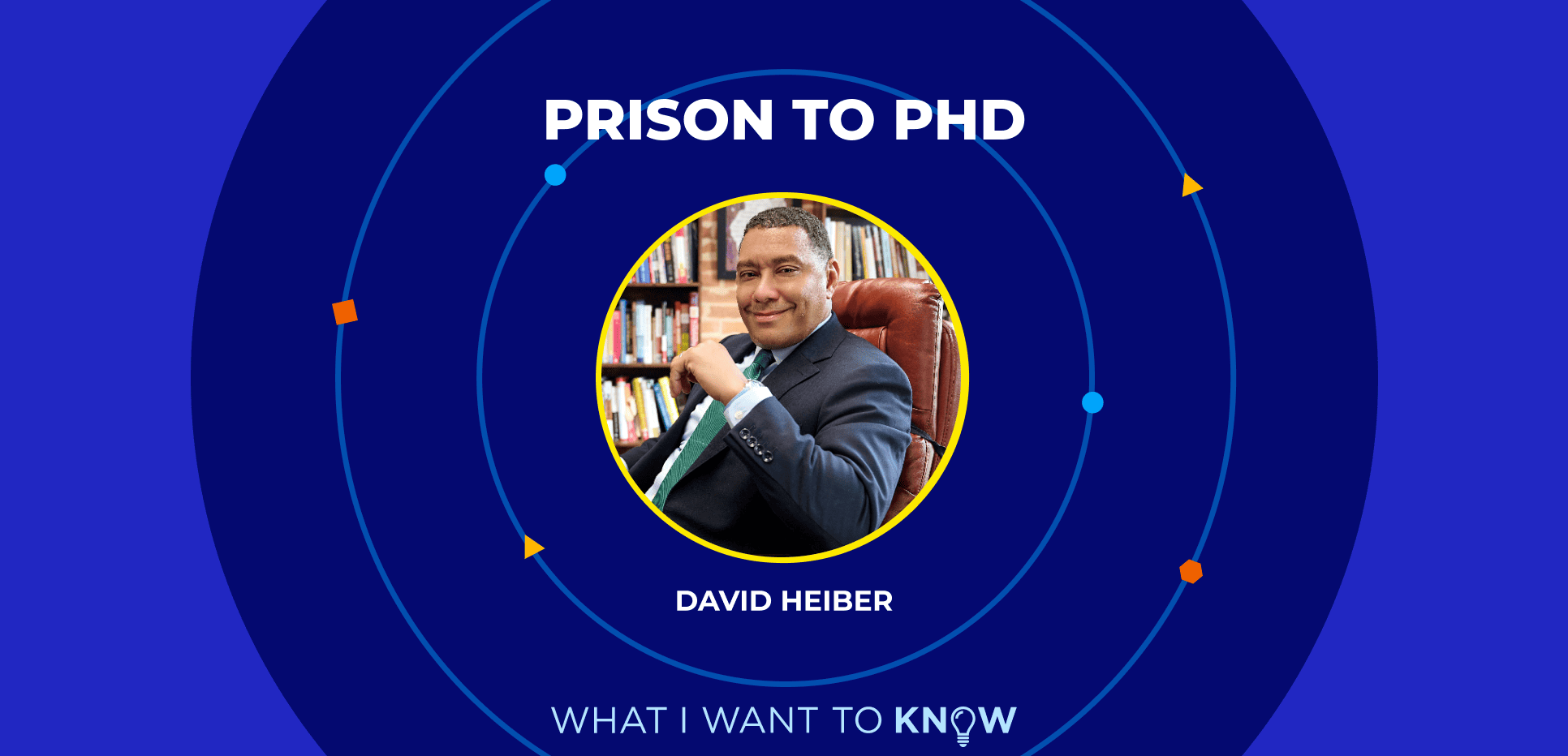In this episode of What I Want to Know, host Kevin P. Chavous sits down with Shaka Mitchell, Senior Fellow at the American Federation for Children and a national leader in education reform. From classrooms to courtrooms, Shaka has been at the center of the fight for school choice, charter schools, and equitable education policy. Together, they explore whether choice truly expands opportunity, how legislation is reshaping access, and what the future of education innovation might look like.
Listen to the Full Audio
Listen on: Apple Podcast, Spotify
Transcript
Shaka Mitchell: The federal legislation represents a tremendous opportunity for nearly every child in the country to access an education beyond whatever their conventional public school is. That’s a big deal.
Kevin P. Chavous: Today’s guest is one of the leading voices in education reform. Across the South Shaka Mitchell has led charter networks advised on state level policy and work with legal teams pushing school choice forward through the courts.
He’s seen this fight from the classroom, the state house, and the courtroom. As more families rethink how and where their kids are educated, his work sits at the center of a national shift. So today I’m asking, is school choice expanding freedom or just shifting privilege around can you disrupt a system without breaking it?
And who gets to decide what a good school really means? This is what I. Want to know? Shaka, welcome to the show,
Shaka Mitchell. Uh, once again, uh, welcome to what I Want to Know.
Shaka Mitchell: Thank you so much, Kevin, for having me. It’s always great to connect with you and I look forward to chopping it up. Up.
Kevin P. Chavous: Well, speaking of chopping it up, uh, you’ve been chopping it up quite a bit in terms of your work. Uh, you know, I know you were doing a lot of work in Tennessee and other places around the country.
Uh, I’ve had a handful of, uh, shows, uh, regarding. The school choice phenomenon and the new federal legislation. But before we get into that, I always like to ask my guests, how the heck did they get in this work? I mean, this is not work for everybody. Talk a little bit about your journey leading to the work that you’re involved in.
Shaka Mitchell: Yeah. Thank you. Well. I think that, um, for me, um, you know, and I don’t think I’m alone in this, but everybody has their own educational story, right? Because we all either went to school, whether it was at a, at a public school or private school, or did homeschool, whatever. We all have our own educational journey.
For me that started in New York. Um, when I was a kid, I grew up on Long Island and the schools that we were zoned for were not safe. They weren’t academically proficient. And so my family, um. Work to put us into the, some local Catholic schools. And I would say that those schools made a tremendous difference and that wasn’t easy.
I’m one of four siblings, uh, postal worker salary, but our family made it work with some, you know, outside help as well. And then later on we went from New York and we moved all the way to Georgia, where I went to a really big public high school. And again, I really enjoyed that. Um, but one of the things I think early on it showed me, I didn’t know I was getting an education in school choice, but in some ways school choice has always existed either for people who can pay for it or for people who can pay to move.
And we did a little bit of both of that, right. And I started just getting really interested in the question of like, Hey, what about families who. Can’t afford those options. What about them don’t their kids also deserve an education? And you know, the last thing I’ll say is, um, uh, I, I’ll put this, I’ll put this on my mom.
I don’t think she’d be too mad about this, but my mom is not even five feet tall. And so. Like going to the league was never an option for me. It was education or bust. And so, and we really just bought into that. And, and I still think it’s the surest way to achieving whatever your hopes and dreams are. Um, it, it’s a quality education.
Kevin P. Chavous: Let’s unpack where we are. Uh, but in doing so, Shaka, I wanna, I want to really go back to where we’ve been, uh, for many years. Um. You know, people talked about the inequities found in traditional public, public education. And again, I’m the first to say that that doesn’t mean that public education is a failure for everyone, but for far for, but for far too many kids who come from working class families.
Or, you know, minority families, uh, kids of color, you know, a lot of these schools just don’t work. And, uh, because of those challenges, it helped birth the charter movement. And then the, you know, the, the school choice movement in total, which includes tax credit and scholarships and all that. Uh, along the way.
Traditional public school responded with magnet schools and specialty schools and special needs schools and all that. But seeing where we are, uh, after all these years. The one question I wanted to, to, to tease out with you is this, on this question of choice, I have had choice advocates in the wake of the federal legislation come to me and say that they’re full fledged choice advocates.
But does more choice mean automatically mean a quality education? I mean, that’s kind of where we are now. Are we overselling? And again, I’m, I’ve been a, a choice advocate for years. Are we overselling what will happen in education? Just because there’s more school choice.
Shaka Mitchell: Yeah, more options. Yeah. It’s, it’s a great question.
And this summer I’ve been working with a college student, um, with a, one of our fellows actually has been kind of doing a, an internship of sorts with us. And he asked, asked me a similar question. He basically said, is choice enough? Or kind of why? Why is choice the thing for you? And, you know, my experience isn’t just in the, um, the policy and choice sector, but I was with a few charter school networks as well.
And, um, you know, I’ve, I’ve been in the classroom space some,
Kevin P. Chavous: let me jump in for a quick moment. For a lot of students, the traditional model just isn’t the right fit. That’s why more than 3 million families have chosen K 12 power schools, offering flexible tuition free learning options with certified teachers, and a personalized approach that meets learners where they are.
If that sounds worth exploring, you can head to k12.com/podcast. Alright. Back to the conversation.
Shaka Mitchell: And so to me, there are lots of places in the education ecosystem that need improvement. Whether that’s principal training or teacher professional development, or you know, the materials themselves, right? Uh, uh, investing more in parent engagement.
All, all these things. These are all really valuable things. However, I still believe that choice is the most potent lever that we can pull when it comes to doing the most for the greatest number of students. So nothing is a panacea, but I really do think that. The federal legislation represents a tremendous opportunity for nearly every child in the country, as you know, um, to, to access an education beyond whatever their conventional public school is.
That’s a big deal. So I do think that it’s the. It’s has the potential to be the most catalytic. I think that’s maybe a good word for it. Choice can be really catalytic in a way that professional development even isn’t right, because those things take years to stack up before you see impact, but you give a scholarship to a student and you can see impact.
You know, on day one of that student attending a school that’s a better fit for him, or,
Kevin P. Chavous: you know, I tend to agree, obviously. Um, for many years, uh, people, uh, hung their hat on the belief that to traditional public education could reform itself from within. And I have, I said many years ago that I don’t believe.
Public education can reform itself from within. Uh, the only way to reform this sort of systemic atmosphere is through external pressure, and I think the best form of external pressure. It happens to be, uh, parent choice, school choice, add freedom, whatever you wanna call it. Uh, but it still begs the question about, uh, what we do now because, uh, when you have all these options, uh, there is, there are a number of linger concerns.
And one I want to, I want to get to is, especially with universal choice. What about the kids that could be left behind? Because we know that the parents and families of means sometimes, you know, day one when a signup starts, they’re the first in line. They are able to le leverage the process. You know, a lot of working class families don’t have either the wherewithal or the access to information.
Many of ’em still. Don’t, don’t have email addresses. So, HH how can we ensure that with this explosion of choice options that folks with the most need, whose kids are in schools with the most challenges, are still able to access them before the numbers and the, uh, enrollment numbers run, run out.
Shaka Mitchell: Yeah. And I, I think you’re really getting to what was at the heart of the school Choice movement, especially at its inception, right?
I mean, when thinking about the original Milwaukee, about your program, many of the charter, charter school, uh, laws that started were really targeting specific. Groups. Um, so now we’re at this, this point, and I don’t know that it’s an inflection point so much. Um, but the ecosystem has changed a little bit in that now we’ve got these universal programs, as you mentioned.
Um, which by the way, I think every child deserves a school of best fit or an educational setting of best fit, right? It might not even look like brick and mortar school. So, uh, we also know that every family has different. Dynamics, right? You might be a high income family. With children who have, um, exceptionally high needs.
Right? And so those are things we wanna factor in. That being said, at least at American Federation for Children, we really think it’s important that lawmakers and policymakers, when they’re considering these programs, that they prioritize the student groups who have been underserved for a long time. And so one of the things that we try to, to.
Bake into every law, um, is prioritizing students from lower income communities and families, right? So whether that’s that the students kind of move to the front of the line if there’s a, if there’s a, a queue or that we reserve spots. So we did that in my, my home state here of Tennessee. We just, um, had a new education freedom scholarship program and of the 20,000 available scholarships.
10,000 of those were reserved for lower income families. And we think that’s a great way to do some of what I think you’re talking about, which is how do we make sure that, um, that all families, truly all families can access these new options. So we, we think you can craft policy in a way that’s careful, um, expands freedom for all families, but also recognizes that, um, that we’re not starting on an equal.
Kevin P. Chavous: Yeah. And I think that led to some of the, as you said, charter school movements around the country as well as the cries, uh, for, uh, equality and equity and education. How is that reconciled with a lot of the Red state legislators? And this sort of counter push against DEI, which has become sort of a, an inflammatory, you know, buzz buzzword or expression.
Um, do you feel that there is some potential spillover for, for, for you, when we talk about reserving some slots or ensuring that there’s a prioritization given to families with needs. Of all shapes, you know, black, white, brown, what have you. And yet there’s this thing where, you know, a lot of folks in, in red states and, you know, it’s, it’s sort of political parlance now that say we don’t want to give any, any specialized treatment or attention to any group.
Shaka Mitchell: Yeah. Well, I think one of the interesting dynamics here is that in. Frankly, in most states, um, the, the two biggest, uh, academic gaps are among, um, students of color in urban areas. And then, um, it’s often white students in rural areas and you see these gaps, right? And so that’s actually where I think, you know, maybe you get kind of some.
Um, uh, legislators hopefully rowing in the same direction a little bit. I, I would say parents are rowing in the same direction. Legislators are often slower to follow, but, um, but yeah, families in rural areas. Often, I, I mean, don’t even have the kinds of options that you do in an urban area. At least there’s some density.
And so that’s where I think there can be a little bit of coming together and where you realize, oh, this is, uh, when we prioritize low income families, um, this is not about color necessarily. It’s not even about geography, right? This, this really can be a way to prioritize just the, the communities that have lacked options.
Kevin P. Chavous: Yeah, I, I, I think that’s well said. And I, I would agree with that. You know, uh, when I was involved in helping birth charter schools in the District of Columbia, other folks were involved in, uh, starting their charter school movements. In other states, there was such high hopes, and we have seen that by and large charter schools still, uh, traditionally outperform traditional schools, but.
There’s been a little bit of a glut where some charter schools aren’t as good as we expected them to be, or some, even the, the, the ones that start out really good have slipped a little bit. There’s been sort of this in institutionalization and, and settling back into old practices. Um. Okay, what do we do in, from an innovation point of view to make sure that schools stay on task?
I mean, this is a day in, day out chore and you know, having been exposed to the classroom as well as, you know, legislative process, that it never ends. And once you get comfortable. Sometimes that’s when the slide starts. And now that we have this huge legislation in place, uh, to offer more choice options, what can we do to ensure that quality is still front and center no matter what school your child goes to?
Shaka Mitchell: Yeah. Yeah. It’s a, it’s a great question. I think your observation is. Spot on. Um, particularly in the charter school space. I think over the years there has been this dynamic where, um, where some lawmakers, I, I, let’s be charitable and say even lawmakers who have favored charter schools or favored education reform, they have said, oh, well, if you love something, let’s regulate it.
And I would say, actually, let’s not do that. Right, because. I think what we have found is that, um, over the years, the number, uh, of regulations on charter schools has increased. And so when I was at a network, I mean, I, I told someone, I said, listen, the is at a charter management organization. I said, when a charter school has to hire a compliance director.
That’s a problem. That’s a, that’s a bug in the system. That’s not a feature. Right? Because that means now you need specific headcount, you know, and employees to deal with all the regulations that that means you. I think that means you’ve taken your eye off the ball in terms of innovation and really doing something that advances.
You know, uh, pedagogy and, and quality education, and you’re having to just check the boxes, which is what a lot of conventional public schools have to do. They find themselves checking boxes and not serving student needs. So I, you know, that’s one thing I would say is we’ve gotta, we’ve gotta figure out, um, state by state, which of these local and state regulations are, are adding no value to what charter schools are doing.
And then the other thing I would say in. And this, I think you saw a lot of, uh, when COVID first hit a lot of charter schools, unfortunately, um, followed the. District playbook for too long. And I don’t mean to make a statement, I’m not a, a healthcare professional, so I don’t mean to make a statement about, you know, how you, how you keep kids safe.
But I think that perhaps out of fear. Um, perhaps they didn’t want to wanna ruffle any feathers. Um, maybe they thought it was a prudent thing to do, but a lot of charter schools just did whatever their local district did. And in, you know, in my family’s case, that meant that two of my girls were at home for almost 18 months because they had been at a charter school at the time.
Well. Private schools, non-public schools at the time, their kids were going to school pretty soon after, you know, that first fall. And um, and I think if you talk to charter leaders, the candidly, they will say, yeah, that was a mistake. We should have focused on results. And what could have only happened if we had, um, more, you know, proximal, um, more proximity to our students and that that was a big miss.
Kevin P. Chavous: Yeah. Well, I mean, I, I, I’m, I’m gonna keep it real. Chaka. I mean, the reality is that looking back we thought. That charter schools, by and large, would be a, uh, a vehicle for innovation and creativity. And some were, but the reality is that most charter schools today, uh, really hang their hat on. Being able to say they have built a better mousetrap, but it’s the same mousetrap, the same structure, the same bell schedule, the same, you know, uh, segregating kids based on age and, and grade, uh, algebra and ninth grade, you know, uh, a, B, C is alphabetical, you know, biology next, then chemistry, then physics, uh, it’s.
It’s, it’s the same and the innovation, creativity, you know, there’s some icing on the cake, but it’s still the cake. And I think what’s really exciting about even the, you know, explosion of, of AI and all these other content sources that students have immediate access to, it’s going to explode the paradigm.
And, and you know, the teachers of the raw, and I’ve said this on several shows, will be not content deliverers. But help kids be able to disaggregate and, and use critical thinking to sort through the content they’re receiving and, and what it’s okay if a seventh grader can take, should be able to take algebra.
It’s okay. Uh, if you wanna wait and take it when you’re in 12th grade and this scooter career is gonna explode things. I guess my my point is that for that kind of innovation and, and. Really shake up of the structure, which doesn’t suit individual kids’ needs. Do you think that more school choice could help facilitate that?
Shaka Mitchell: Yeah, I do. And it’s, and I agree with everything you just said, right? I mean, for too many of our, um, charter schools fell into this trap of believing that innovation was. Um, merely packing in, um, 90 extra minutes of instructional time per, you know, per week. And that’s, that’s, that may be really valuable. I think it probably is valuable, but it’s, that’s not where the innovation train should stop.
Right. That’s, that should be the first stop. Um, yeah, I do think that choice, um, has the potential to encourage some of the things you’re saying. And I would, you know, one of the things I’d point to, for instance. Is this new kind of emerging school models landscape? I think when I think about where the energy is, where I see energy in the education reform movement, this is where I see energy.
It’s with folks who are not necessarily interested in building a network of 20 or 200. Schools, it’s it’s teachers who are, uh, currently in a conventional public school and they say, you know what? I think we could do this better. I think two of us could get together. We could do this better. We are gonna have basically like a one room classroom.
For a micro school. Um, you’re seeing all different types, types of, um, software platforms that are helping. Some are helping people organize and do the backend logistics of school. Some are are curriculum and pedagogy. I’ve seen, um, I did a whole lesson with a, a group that’s doing things with VR and, um.
That made me feel old, by the way. But, but it’s just really exciting. And so, um, I, the link to me to school choice is because a school choice program or an education freedom program is not trying to put its thumb on the scales to much and say, here’s what it’s got to look like. It’s got to look like 180 days, um, from eight to three 15 and blah, blah, blah, blah, blah.
And, um. Yeah. Instead it’s saying, let’s let a thousand flowers bloom and we’re gonna look at what some of the results are and if parents are satisfied, if we can show that kids have some really positive outcomes. And I think we should, by the way, be measuring some of some of these things. Um. But yeah, like you said, we don’t care how we get to mastering content, let’s just get there and, yeah,
Kevin P. Chavous: that makes sense.
So a couple more questions. Um, and the, the first one really relates to where you are, your standing, your work, the scars you’ve had. You know, my. I can show you mine. They’re, you know, I wanna say they’re deeper. The older I get, the deeper my scars are in this, this work. But we’ve all been there and, and, and we’ve been so used to sort of pushing that snowball up a hill and the ranker and, you know, you guys are wrong.
We’re right. Everyone, all sides are saying that at some point in time, one would think that since education to me and along with healthcare, that. Two most important topics facing Americans in the future, that we would find a way to come together to find, find a way for common ground for the benefit of our children.
And I know there have been, you’ve been in the middle of a lot of. Uh, and embroidered in a lot of legislative fights. Uh, how do you see that prospect when it’s all said and done? Now that some of this legislation is, is, is in place and we’ve gotta actualize it in a way that that benefits kids, is there a silver lining that as a result of all this.
And before us, we now are in a place where we can find common ground. Is that possible?
Shaka Mitchell: Yeah, it’s a good question. I don’t know if I’m in such a hopeful place that I think the common ground is right on the horizon. But, but I do, I do, um, think about, you know, the Dr. King quote, that the, that the arc of the moral universe bends towards justice.
And I do think the trajectory and the arc is bending in the right way. And I think you’ve seen that in recent years with, um, with parents really engaging in the, at least the K 12 education process in ways that they really hadn’t. In the prior two decades, and so that, I don’t know that you can put that genie back in the bottle, so.
That’s really encouraging to me, and that’s parents of all stripes. It, you know, black, white, brown, doesn’t matter. Political affiliation doesn’t matter. That’s just parents because we care about our kids and we want our kids to thrive. I also think we’re, um, as, as scary as all the, the new AI and um, sort of large language model technology might be.
And because it’s unknown, I think there’s real opportunity here because now we’re at this point. Where the, the legislation and the technology, like the pacing, um, is maybe moving a little more in sync. So if you think about, you know, when I was growing up, uh, to homeschool was much more of a niche kind of thing.
You had to. Like probably one of your parents was a trained educator. You probably had to be at a certain income level to to do this. And broad strokes, that’s not the case anymore. Now these micro schools and and homeschool pods, whatever, are open to nearly anyone anywhere. And that, I think that’s a game changer.
So if we can, if the policy allows funding to support these new innovative models. I think there is a lot of reason to be hopeful. Uh, if you can cut down, to cut down on the ranker, that’s, there’s a lot of psychology, um, and status quo and you know, power struggles. But that’s all the stuff between adults, I think.
I do think we’re getting it right for more kids than we were.
Kevin P. Chavous: Yeah. So translation, you’re not taking off the shoulder pads of the helmet yet, you know, but, uh, I hear you, you do see that the gamesmanship has the potential to end, and I think you’re right about one thing. Um, you know, we’ve been talking about.
You know, ed, freedom and Parent Choice for a long time that genie’s not going back in the, in the bottle. The parents’ engagement level is at an all time high. We haven’t seen this in, in decades, and as a result, they will drive the change even more. And in many ways, uh, drive and force the collaboration needed.
To benefit their kids. So I, I, I couldn’t agree with you more. So, Chaka, look, I appreciate your work. I have, I have one last question. It’s one of those sort of catchall questions. Uh, two words. What’s next? After all, we’ve been doing all that you’ve been doing. We’ve talked about the need to try to coalesce around doing what’s best for kids in the wake of the legislative accomplishments.
Where is this all headed?
Shaka Mitchell: Mm-hmm. Mm-hmm. Yeah. What’s next? I mean, you mentioned having a few other guests on recently, um, talked about this federal, uh, tax credit program. To me, that’s what’s next. Um, that’s, that’s in the kind of midterm because that program will go into effect in 2027. And again, there’s a lot of potential there.
Red states, blue states, um. I think about, I’ve got some, some family in California and, um, depend upon where you are in California. Some places have a lot of charter schools. Some places lack charter schools, um, but have a lot of private schools, but they’re very expensive. Cost of living is high. California is a state that could really benefit from this kind of program.
Pennsylvania is another state like that, so I think. I’d be really interested to see what governors do and, and other lawmakers do regarding that program. Um, but I don’t think we’re done with, you know, I think we’ve had like four years now where people have said, oh, it was a year of school choice. I don’t, I don’t think we’ve had the last year of school choice.
I think we’re, uh, due for another one.
Kevin P. Chavous: Yeah. Shaka Mitchell from the American Federation Children. It’s always good to see you. Thanks for joining us on what I wanna know. Take care. Thanks for listening to What I Want to know. Be sure to follow and subscribe to the show on Apple Podcast, Spotify, or your favorite podcast app so you can explore other episodes and dive into our discussions on the future of education and write a review of the show.
I also encourage you to join the conversation and let me know what you want to know using hashtag WI WT K on social media. That’s hashtag WI WT K. For more information on Stride and online education, visit stride learning.com. I’m your host, Kevin Peach. Chavis. Thank you for joining. What I want to know.
Meet the Experts
Meet Shaka Mitchell
Shaka Mitchell is a Senior Fellow at the American Federation for Children and a national leader in education reform. He has worked with high-performing charter school networks, led policy and outreach efforts at the Center for Education Reform and the Institute for Justice, and teaches American Government and Constitutional Law at Belmont University.






